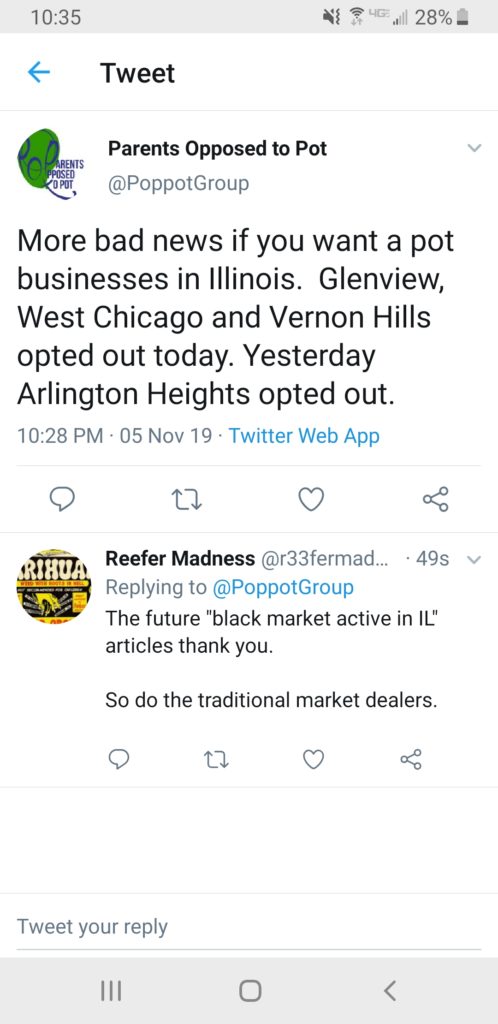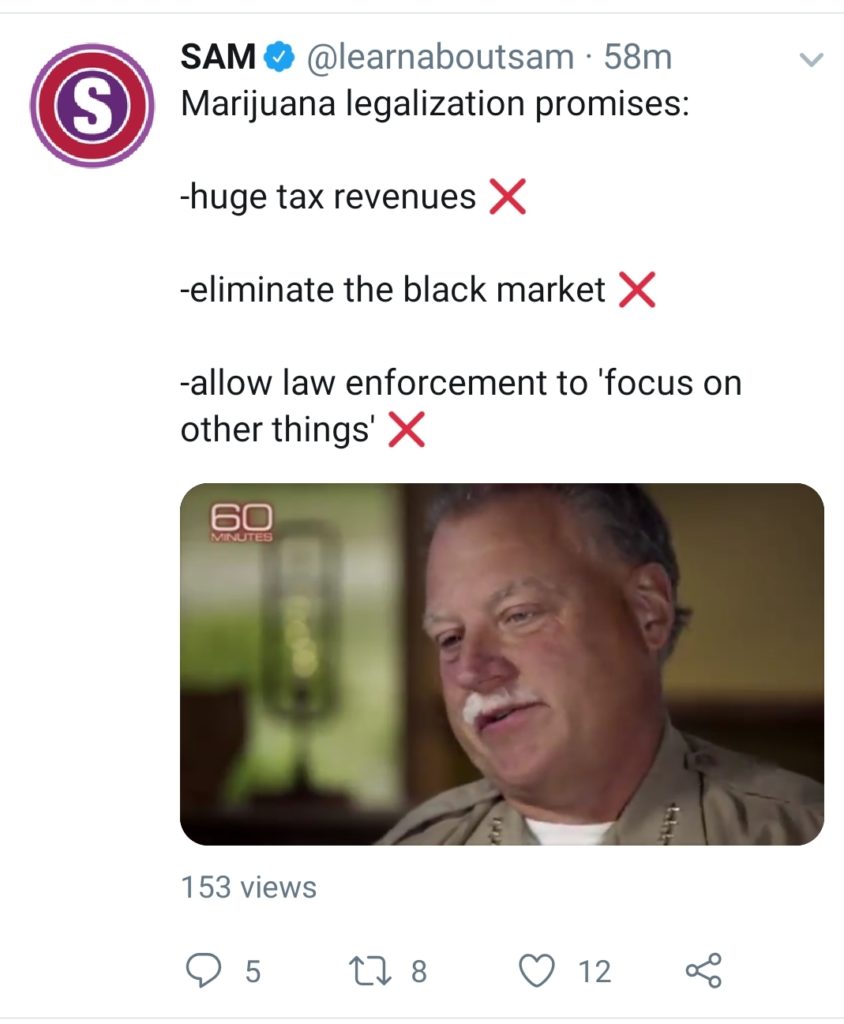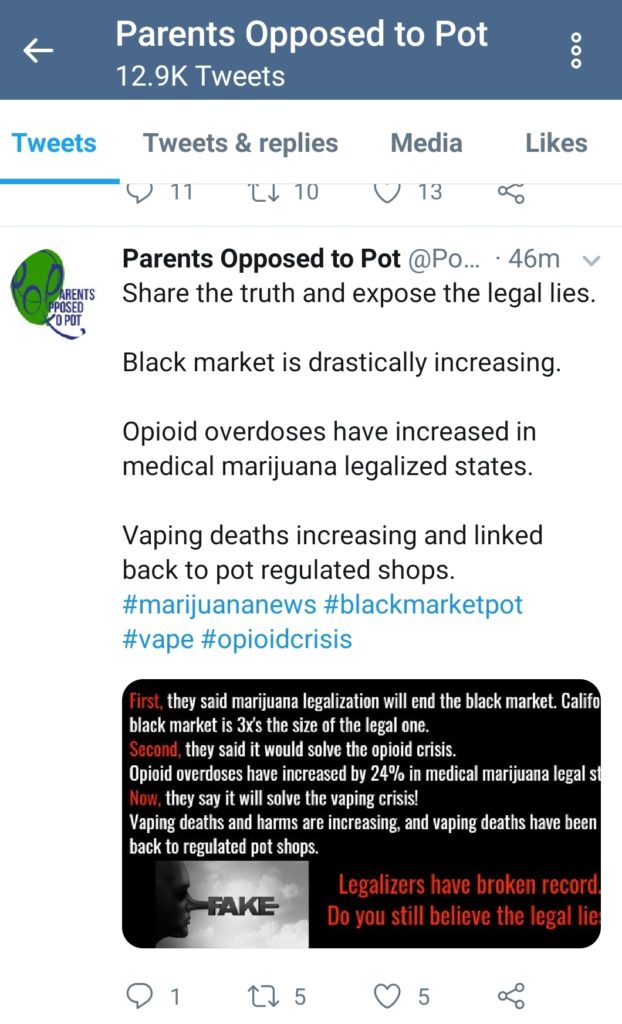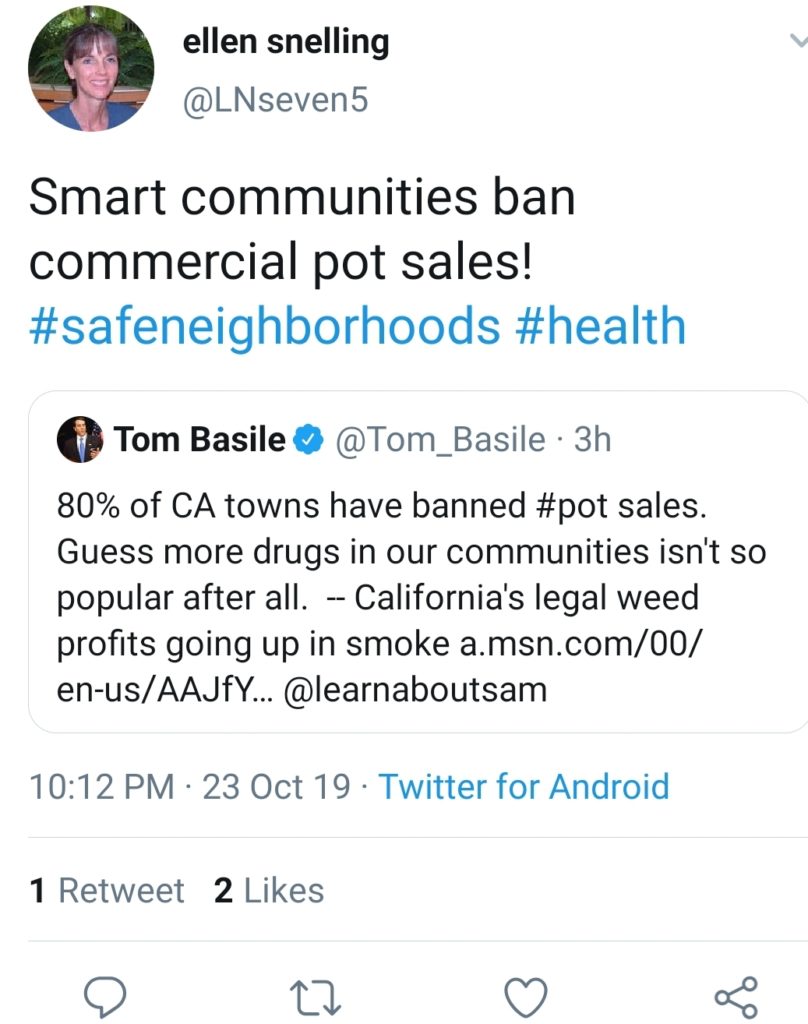Juul has swept the public consciousness as synonymous with vaping. Vaping has been around commercially since 2006 and the technology has existed since 1960. However, the explosive growth of Juul with brand recognition has gathered ire from the prohibitionist crowd.
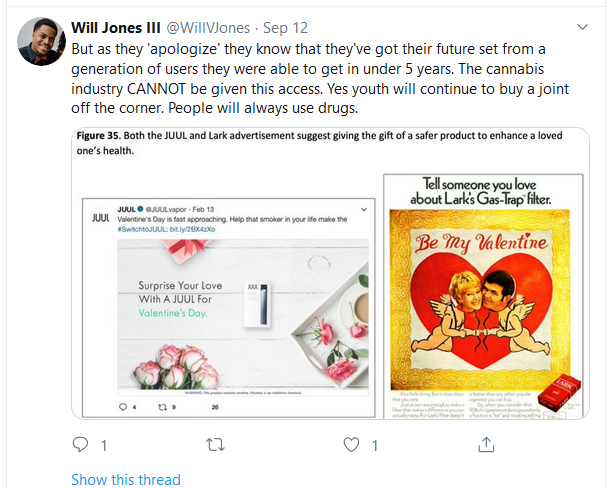
Juul has taken bad press recently with the vaping “crisis.” Their popularity has become a lightning rod for prohibitionists to spread more fear, uncertainty, and doubt (FUD).
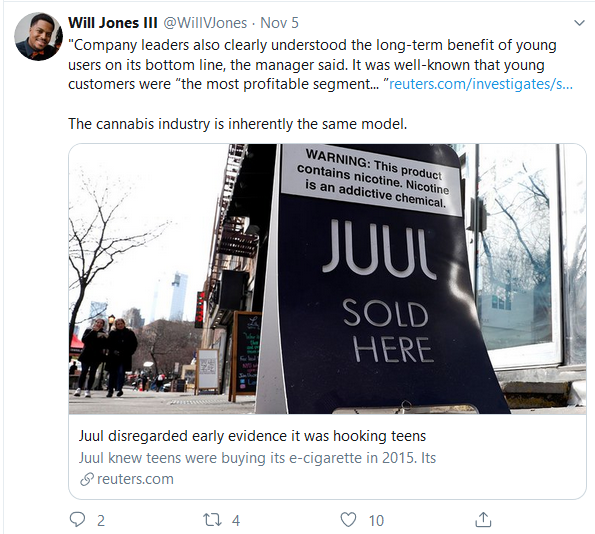
The prohibitionists continue the tactic of conflating other substances with marijuana. They bring up issues like Juul being investigated by the FDA for marketing practices and state “do you want this to happen with bIG mArIjUaNa!?!?.”
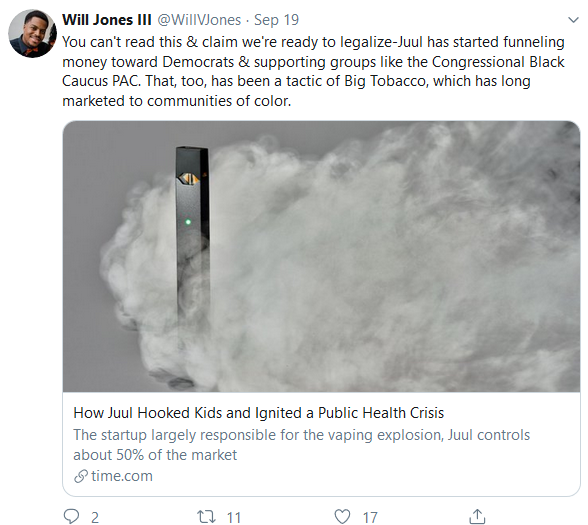
Yes, actually we do. If cannabis becomes federally legal, the federal government will have oversight on industry practices and policy. No one is advocating children should consume recreational cannabis. Having advertising regulations at the federal level will allow the federal government to investigate these companies when they are in violation.
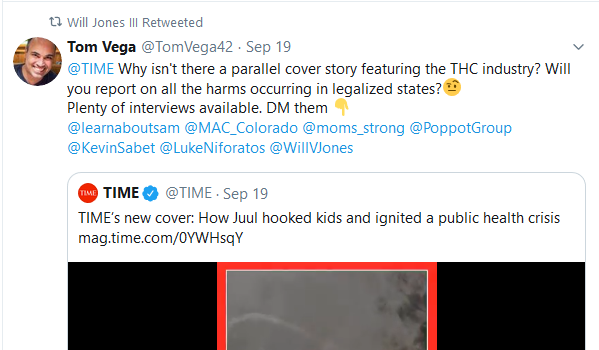
We have learned a lot from alcohol prohibition and reeling in Big Tobacco. We can use what we have learned to craft sensible policies on cannabis to allow safe, regulated, and tested recreational cannabis.
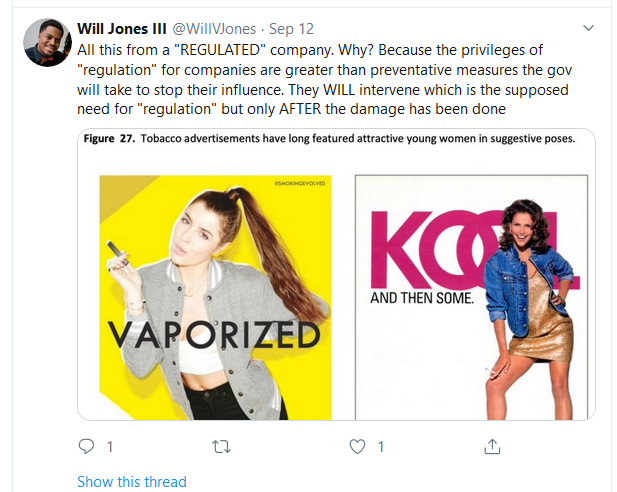
It is sad to see prohibitionists focus on this boogeyman. The forest is much bigger than the few trees prohibitionists focus on. This issue is complex and requires careful consideration. However, the prohibitionist tactics always drive issues to the extreme and focus on tugging on certain emotions in order to continue their outdated mindset.

